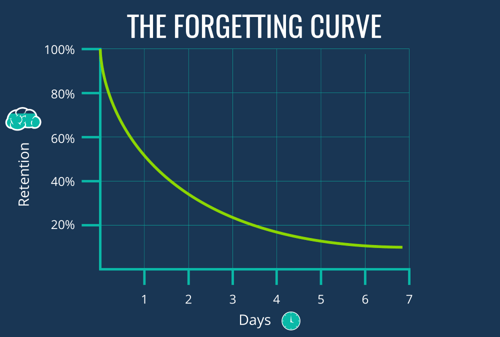At Holden Advisors, it’s fun to hear stories from our workshop participants about how they negotiated an extra $200K into their deal or took what appeared to be lost cause and turned it into a $5MM opportunity that’s on the cusp of closing. (Both true stories.)
Unfortunately, like with any training, we also hear, “I was so motivated leaving the classroom, but now I’m starting to forget what I learned.”
If you’ve ever attended a great course or conference, you’ve probably felt the same way. You leave the class fired up, get back to your 1,000 emails and almost instantly your motivation and knowledge start to fade. And, if you’re like most people, that’s the extent of your professional development for the year. Next year, you’ll get the chance to attend another conference, learn some new skills and the cycle starts again.
There has to be a better way! Luckily, there is.
We’ve found that coaching is the key to keeping your new-found knowledge fresh and useful. At the same time, it enables you to apply your knowledge to real-life situations affecting your business. We’ve had the most success with the three-step process below (a different kind of “MBA”):
- Managerial Participation
- Bite-sized refreshers
- Accountability
Let's take a look at each of the three steps:
- Too often, managers send their employees off for training without having much/any knowledge of the techniques they’ll be learning. Managers are “too busy” for training so they sign off on a class and hope. Hope the employee learns something, hope that learning aligns with their managerial style, hope the employee will retain something that improves their performance. As you’ve likely heard a hundred times, hope is not a strategy.
Instead, managers should participate in the training. At Holden Advisors, we assign managers specific roles in our workshops.This enables managers to not only learn the material along with their employees, but also provides them an opportunity to add an extra layer of realism to the training and know what material to reinforce after the training is complete.
- If your training is worthwhile, it includes many different components and tools to drive enhanced skills and behavior. These tools will make total sense at the end of the training, but participants’ understanding will erode over time. According to Work Learning Research1, people forget 77% of what they learned after only six days and up to 90% after one month. The key to keeping your new skills top of mind is to offer employees bite-sized refreshers.

Graph courtesy of Growth Engineering (www.growthengineering.co.uk)
These refreshers can come in a variety of forms, but we’ve had the most success with virtual sessions for managers. These coach-the-coach sessions directed at middle managers remind them of specific topics and tools they can reinforce with their sellers. Through these easily-digestible webinars, managers get just what they need – not too much, not too little – for their next set of meetings with their employees.
- Alright – time for a little candor. You’ve been to several conferences and training workshops in your professional career. Each of them was designed to teach you something new that would change your day-to-day behavior and improve your performance. How often did your manager hold you accountable for this new behavior? I’ll be shocked if the frequency is greater than 25%. In all likelihood, it’s hovering around zero.
If you want to become a faster runner, you time yourself occasionally. If you enter a weight-loss program, you step on the scale from time to time. If you want to learn a foreign language, you practice it. So why do you attend training and then never hold yourself accountable to your new skills (or as a manager, hold your employees accountable)?
With a simple system aligned with your core competencies, you can easily track your (or your employees’) performance against what should have been learned in the training. An accountability system keeps coaches focused on important areas that need improvement and ensures employees continue to work on their newfound skills.
Embracing this three-step “MBA” process helps our clients get the most out of training – whether it be immediately following the class, in 1 month or years later. And, when you remember what you learned in a previous class, it’s much easier to build upon that knowledge. Imagine, instead of learning one piece of disconnected knowledge per year, you have the opportunity build on what you learned previously to be truly outstanding in your career field.
That’s when you know your training dollars were well spent.
1 https://www.worklearning.com/2010/12/14/how-much-do-people-forget/

.jpg)